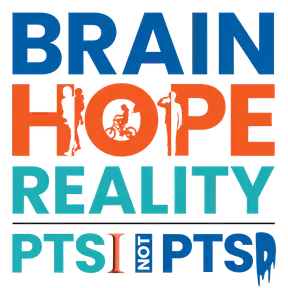EP11 | Changing the Name: PTSD to PTSI | Guest: Bill Kubota, Journalist
Download MP3PTSD is treatable — and may be biologically reversible. Dr. Lipov joins journalist Bill Kubota to discuss science, stigma, and why renaming the condition could save lives.
- -
In this special Veterans Day episode of Brain Hope Reality, Dr. Eugene Lipov is joined by journalist and fellow advocate Bill Kubota for a candid discussion on the urgent campaign to rename Post-Traumatic Stress Disorder (PTSD) to Post-Traumatic Stress Injury (PTSI). Dr. Lipov explains why the term “disorder” perpetuates stigma, discourages treatment, and ignores the growing body of biological evidence showing that PTSI is a measurable, physiological injury. Drawing on historical context, brain imaging studies, and decades of military and civilian trauma cases, Lipov presents a clear, science-backed case for why the DSM must evolve.
Kubota, a longtime reporter and ally in amplifying voices from the veteran and trauma-impacted communities, engages Lipov in a wide-ranging conversation that includes suicide prevention, trauma inheritance, and public health messaging. They discuss the impact of advocacy work by figures like General Pete Chiarelli and Dr. Frank Ochberg, as well as the challenges in breaking through national media silence. Lipov shares updates on his formal proposal to the DSM Steering Committee and urges listeners to support the movement through a public letter campaign. Together, they reflect on how a simple name change—backed by science and compassion—could save countless lives and reshape how we talk about trauma across generations.
- -
In this special Veterans Day episode of Brain Hope Reality, Dr. Eugene Lipov is joined by journalist and fellow advocate Bill Kubota for a candid discussion on the urgent campaign to rename Post-Traumatic Stress Disorder (PTSD) to Post-Traumatic Stress Injury (PTSI). Dr. Lipov explains why the term “disorder” perpetuates stigma, discourages treatment, and ignores the growing body of biological evidence showing that PTSI is a measurable, physiological injury. Drawing on historical context, brain imaging studies, and decades of military and civilian trauma cases, Lipov presents a clear, science-backed case for why the DSM must evolve.
Kubota, a longtime reporter and ally in amplifying voices from the veteran and trauma-impacted communities, engages Lipov in a wide-ranging conversation that includes suicide prevention, trauma inheritance, and public health messaging. They discuss the impact of advocacy work by figures like General Pete Chiarelli and Dr. Frank Ochberg, as well as the challenges in breaking through national media silence. Lipov shares updates on his formal proposal to the DSM Steering Committee and urges listeners to support the movement through a public letter campaign. Together, they reflect on how a simple name change—backed by science and compassion—could save countless lives and reshape how we talk about trauma across generations.

